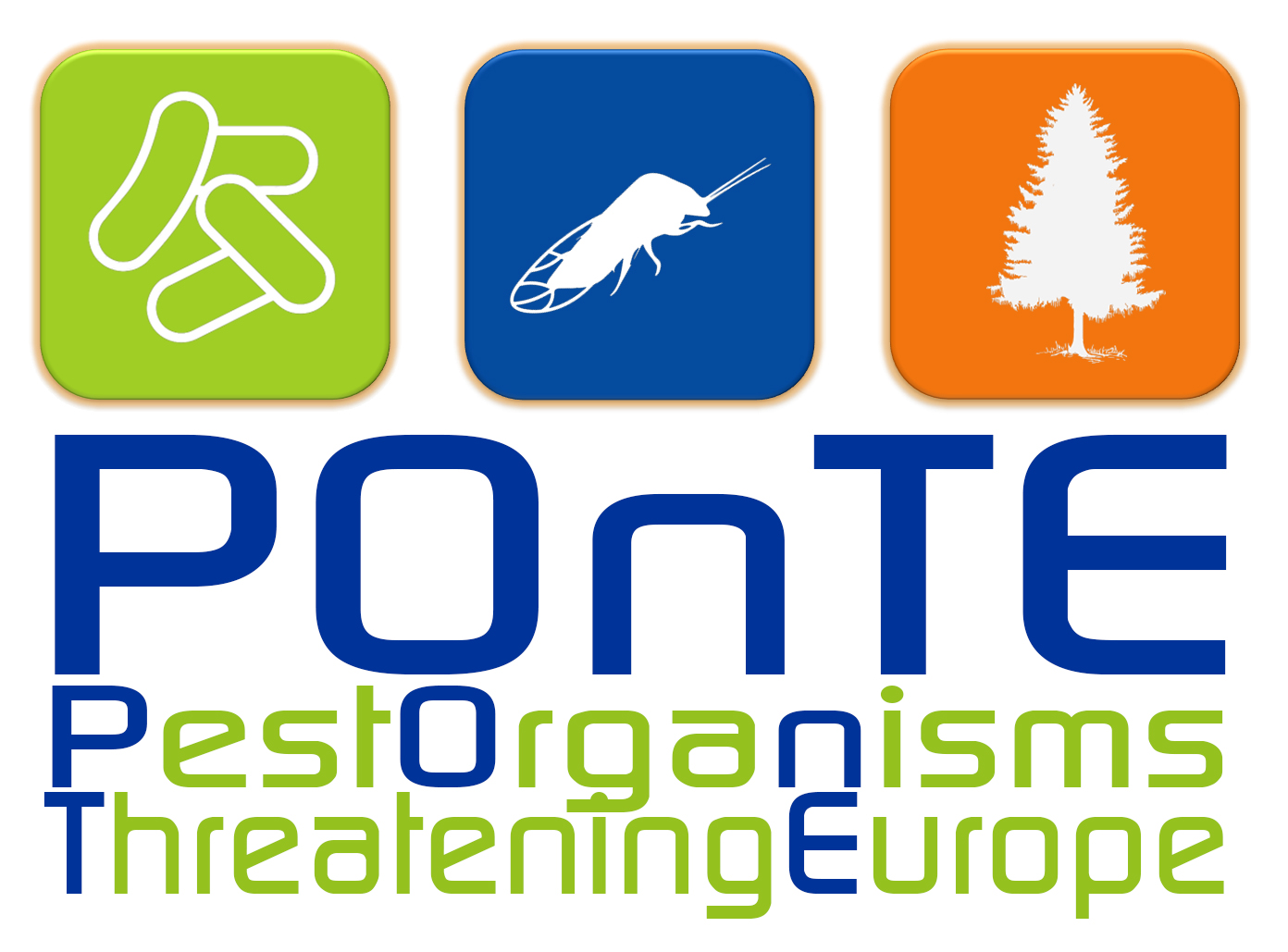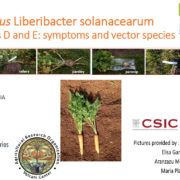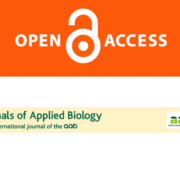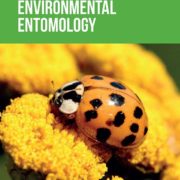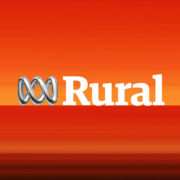Risk assessment of ‘Candidatus Liberibacter solanacearum’ transmission by the psyllids Bactericera trigonica and B. tremblayi from Apiaceae crops to potato
Antolinez C.A.1, Fereres A.1, Moreno A.1
1 Instituto de Ciencias Agrarias (ICA, CSIC), Consejo Superior de Investigaciones Científicas (CSIC), C/Serrano 115 Dpdo 28006 Madrid, Spain
Abstract
Candidatus Liberibacter solanacearum (Lso) is bacterium transmitted by psyllids to Solanaceae and Apiaceae plants. So far, Lso is found in Europe affecting Apiaceae. In the Mediterranean region, Bactericera trigonica is the only known vector of Lso, but the leek-onion psyllid Bactericera tremblayi is another widespread psyllid and potential vector of Lso. Commonly, carrot, leek and potato are cultivated in the same zones and it is uncertain if these psyllid species are able to transmit Lso to potato plants. Here, we assessed the transmission of Lso by B. trigonica and B. tremblayi to potato plants. B. trigonica showed preference to ingest from the phloem, settle and oviposit on carrot and celery but not on potato. This was correlated with high Lso transmission rates to both carrot (80%) and celery (70%) but very low to potato (≤3%). B. tremblayi preferred leek over carrot and potato, the latter being the less preferred host. B. tremblayi readily ingested from the phloem of infected carrots but failed to transmit Lso from carrot to carrot. Our study shows that the risk of Lso transmission from Apiaceae to potato by B. trigonica is very low, and that B. tremblayi is not a likely vector of Lso.
The European Union Horizon 2020 research and innovation programme under grant agreement No. 635646, POnTE (Pest Organisms Threatening Europe) provided financial support for this work.
Published on April 3, 2017 by SCIENTIFIC REPORTS
